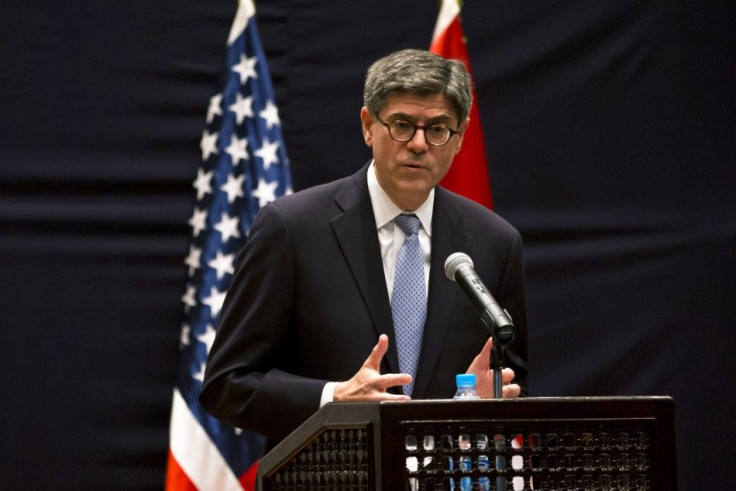US Treasury Secretary Blames Europe’s ‘Status Quo’ Policies For Failure To Achieve G20 Objectives

Speaking at the World Affairs Council, the U.S. Treasury Secretary blamed Europe's "status quo" policies for the failure to meet the objectives set by the G20. He was speaking on the topic of building a stronger global economy at the event held at Seattle.
The meeting of the G20 finance ministers is set to begin on November 15 in Brisbane, Australia. The agenda may be dominated with the efforts the member countries can take to give a boost to the sluggish growth that the global economy has witnessed in the past few months, especially in Europe.
Jacob J. Lew, the U.S. Treasury Secretary, lauded the efforts taken by the European Central Bank to support the economy with its monetary policy. But he stressed the need for countries in the Europe to complement this with prudent fiscal policy. He said that the efforts of the ECB alone would not be sufficient and other stake holders will need to step up and take action.
Mr. Lew warned that the failure by the relevant stake holders in Europe to take action could mean that the region falls deeper into an economic slump. He said that the world could not afford a "European lost decade."
The Treasury Secretary cited the example of Japan, which had come out with a three pronged approach to create sustained growth. The approach was through monetary and fiscal policies and later through structural reforms. Mr. Lew said that the strong growth that Japan witnessed in 2013 was thanks mainly due to the monetary and fiscal policy of the government.
Mr. Lew further said that growth in Japan faltered this year after the government made adjustments to the fiscal policy. The Japanese government hopes to make up for it with structural reforms in the economy, but Mr. Lew said that it was still too early to comment on whether the efforts are having the desired effect on the economy.
Speaking about the U.S. economy, Mr. Lew said that the world economy cannot expect the U.S. to import sufficient goods to pull the world economy out of a recession. Although, there have been some signs of a recovery in the U.S. economy, the growth, Mr. Lew warned, may not be fast enough to compensate for the weaker growth in other countries. Export oriented economies around the world may now need to reorient the policies towards domestic demand.





















